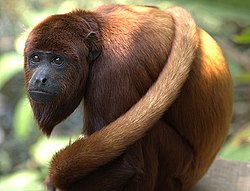GénesisTorres
Location:
El Guácharo
National Park is a Venezuelan national park located in the eastern section of
the Mountainous System of the Caripe Mountain Range, in the Cerro Negro, Cerro
Papelón and Cerro El Periquito ranges of the Caripe Mountain Range, between Monagas
State And the Sucre state. It occupies part of the municipalities Caripe,
Acosta, Piar and Bolivar (Monagas) and Ribero (Sucre).

Gabriela Rivas
Flora:
The mountainous
landscape, with uneven relief, given by a very dense hydrography that results
in narrow valleys bounded by strongly inclined slopes. There is a very common
tree, the copey and Clusia alata. Among others are Laurel, El guayabito, paneco
and platanillo. Associated with these trees are tree ferns and a large number
of epiphytes and climbers. Abundant orchids or the so-called May flower;
Recognized as the National Flower of Venezuela.
Wildlife:
The fauna of the park is diverse, among the mammals are the monkey araguato Alouatta seniculus, the capuchin monkey Cebus nigrivittatus, the barnacle Tayassu tajacu, the tiger or jaguar Panthera Onca, puma or American lion Felis concolor tigrillo Leopardus wiedii, Water dogPteronura brasiliensis.

Denice Mestre
Food
The delicious house of Monagas accompanies The veal head baked in The style ot The savannah it is The representative dish of the moturinese region sancocho de gooraguara sancocho de bisco, san cocho Empanada de pollo, Arepa pelada Sancocho of Fish or Fried Fish, Consomé of Chipichipi, Cachapa de Maíz, among others
Wilkeidy Díaz
Tourism
Promulgated National
Park on May 27, 1975, under decree No. 943. It is named after the presence of a
bird called Guácharo, which is reddish brown, striped in black and mottled in
white, the only frugivorous bird that feeds At night and stay in the caves
during the day, building their nests in the heights of the caves. Besides its
tourist value, it is the source of the most important water reservoirs in the
northeastern states of the country. Most of the park has the Municipality
Caripebut also shares it
with the municipality of Monagas Acosta and a part of the Rivero municipality
of the state of Sucre. In front of the cave there is a beautiful waterfall that
represents a pleasant place to share with the family. The route is also made by
a road that is inside the mountain. The Cave is subdivided in three great
galleries, the Guácharo Gallery, the Gallery of the Silence and the Gallery of
the Beautiful Hall. The constant dripping of water has created formations that
claim to resemble human forms, animals and even religious figures such as the
face of Jesus Christ (a stalactite eroded by the wind), the Virgin of Coromoto
and the Virgin of the Valley, among others. In front of the cave there is a
beautiful waterfall that represents a pleasant place to share with the family.
The route is also made by a road that is inside the mountain.


